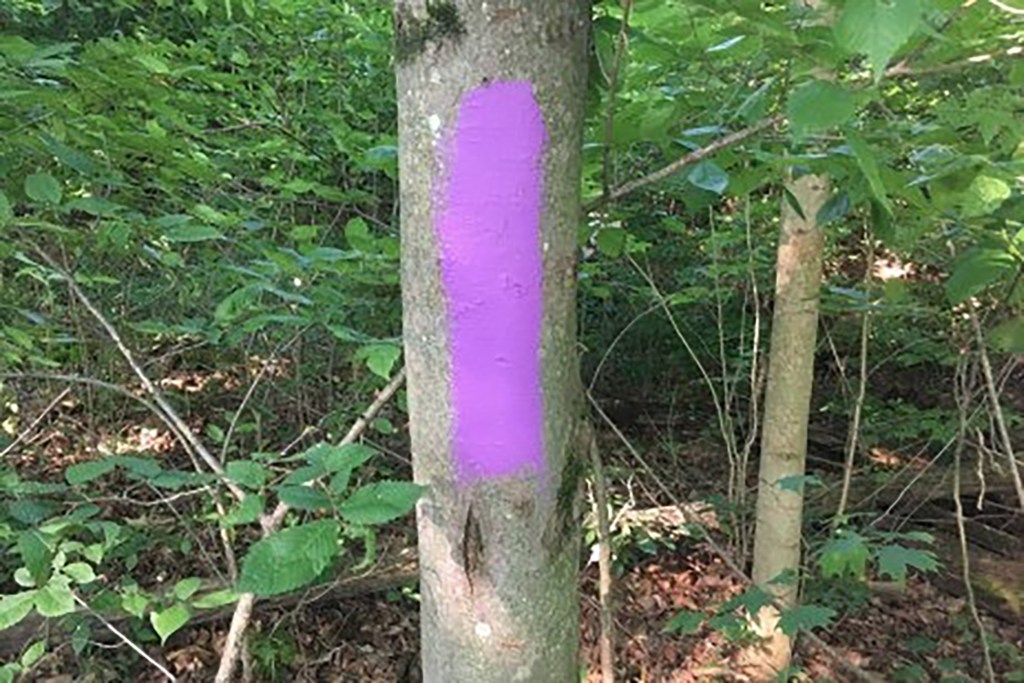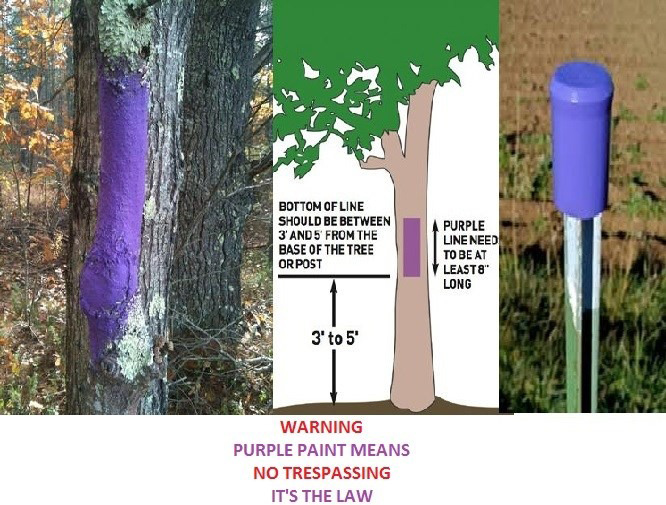Forget a red flag — if you see purple, start running. In nearly two dozen states, a purple marking on a tree or other stationary object out in the wild denotes private property, and depending on where in the United States you are, landowners could be heavily armed.

The woodsy notations are considered an acceptable substitute for actual signage in a wide range of states — some states use orange, red or blue, but many, including Florida, Texas, Alabama and South Carolina, opt for the more universal purple.
Lawmakers in favor of paint markings believe it is a cost effective way to denote land ownership without forcing residents to purchase costly signage, which could be vandalized, and is also environmentally friendly and does not create an unnatural eyesore.
In states with purple paint laws, the size of markings and distance between them are regulated to be about 8 inches long, one to two inches wide and about three to five feet from the ground, per the Daily Mail.
Critics are concerned, however, that not everyone knows what the markings mean, whereas posted signs can be easily read and understood.

“The advantage to signage is that anyone who is walking by a boundary can easily read that there’s a private land boundary,” Andy Mossey, the stewardship and advocacy coordinator at the Catskill Center, told the Times Union in 2021.
“If it’s just purple paint with no signage, people may be less likely to understand what that is unless the state itself and organizations across the state have done a significant job getting that info across to all visitors,” he said.

Not to mention, determining where public land ends and private property begins is pricey, but to allow landowners to mark their territory themselves could create another host of issues.
“If you just use purple paint, can there be fudging?” said Maria Bedo-Calhoun, president of the Catskill 3500 Club, adding that it would require strict enforcement in states like New York, where purple paint markings are not legally enforceable ways to denote property lines despite attempts to make it so.
She argued that people already ignore the stark warnings on proper, written signage, so a swatch of paint — which lacks clear instruction — would make it easier to violate.
“They clearly stated, ‘Do not access the stream, stay on the trail,’” she continued. “I think the signage is important, knowing that people violate it even with a clear sign.”